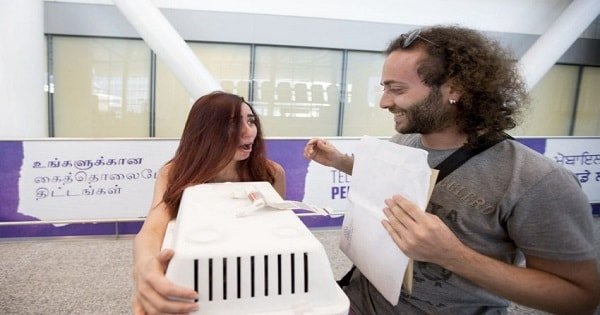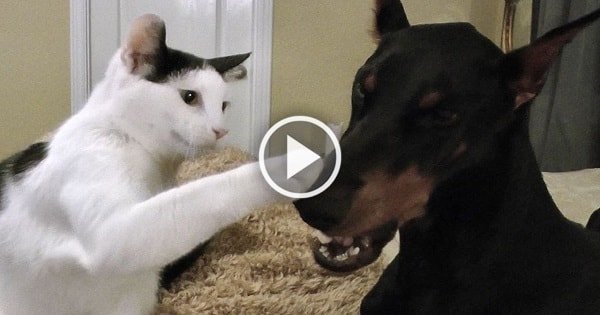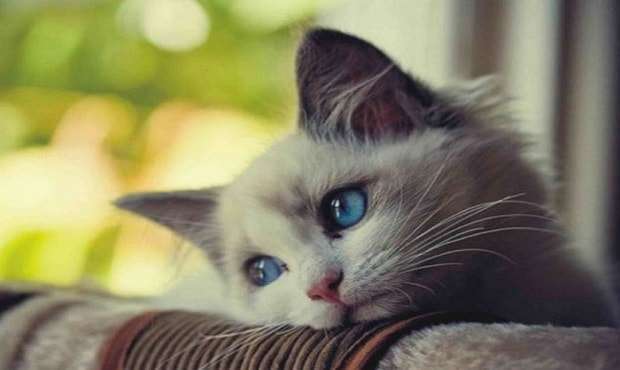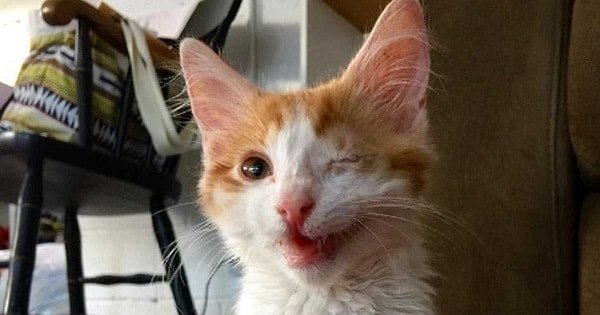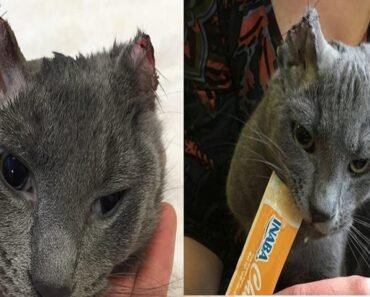Kaadan and Tarek Ghriri adopted a small kitten for company while they were living in exile in Beirut. When they got the chance to finally come to Canada under a private sponsorship, they faced one agonizing choice.
It’s said that cats have nine lives, however, an agonizing choice for two pet owners threatened to jinx their one chance at a new life in Canada.
Instead, this pair of Syrian refugees who had already faced four years of hardship recently had a uniquely heartwarming airport reunion on Sunday with the pet they’d reluctantly left behind.
“It has been so stressful. He really is like a son to us,” stated Nour Kaadan as she awaited the arrival of her cat at Pearson airport’s Terminal 1.
With no home, jobs or family at all in Beirut, Kaadan and Tarek Ghriri adopted a newborn kitten for company while they were living in exile from war-torn Syria.
They named the kitty Emp, which actually means “grumpy” in Arabic — no relation to the Grumpy Cat of Internet fame, of course — because the grey and white tabby is actually quite shy and gets annoyed easily around strangers. The couple quickly grew very attached to their furry friend.
“When I’m sad, he makes me happy. When I’m sick, he wouldn’t leave me. Emp is everything to us. He is our only family outside of Syria. I can’t sleep. We can’t live without him,” Kaadan explained last week, as the couple and their sponsors frantically tried to make some arrangements to reunite the feline with its owners.
When they first met with Canadian officials over in Lebanon last month to pick up their visa to come here under a private refugee sponsorship, one of Kaadan’s first questions was whether Emp would be able to come to Canada with them.
“I was so happy when the officer said Canadians value pets,” noted Kaadan, 29, who is a musician from Damascus, who landed in Canada just last Tuesday. “That was a relief.”
According to the couple and their Canadian sponsor, Lufthansa staff in the Beirut airport refused to board Emp despite the fact that an advance confirmation stated the cat could be placed in cargo space.
They claim the German airline’s staff demanded they pay $50 (U.S.) for a bigger cat box and also an extra $200 for the transport on top of the $200 they were originally told it would cost.
“I called and they told me they had no space in the cabin because there were already two dogs booked, but they had cargo space. We gave them all the dimensions. We had the paperwork to show the cat was immunized and fit for travel,” remembered Jasmin Zine, who is part of the private sponsorship group that brought the family to Canada.
“They said it’s fine and make sure you have food and water for the cat. Nour and Tarek just didn’t have the extra money.”
In an email, a spokesperson for Lufthansa explained that part of its job in transporting animals is to ensure their safety, and its Beirut team clearly felt the crate ordered would not be large enough for the cat for a journey of that duration and could endanger the animal’s life.
The airline’s policies state that a cat or dog must be able to turn completely around in its container or cage in order to travel.
“At Lufthansa, we fully understand the deep bond people have with their animals, and we know that for people in distress such as this Syrian family, their relationship can be even more important,” stated Tal Muscal of the airline, which actually hosts an animal lounge at its terminal in Frankfurt.
On Sunday in Toronto, Ghriri was taken over to customs and reunited with the beloved pet. As he walked through the gate, Kaadan ran up in tears and began trying to kiss the cat through the cage, though the animal bore all the marks of a weary traveler following an almost 24-hour trip.
“He’s tired and grumpy and smells like cat pee,” stated a clearly relieved Kaadan.
While Kaadan and Ghriri are extremely happy to be reunited with their pet, they and their sponsors feel the larger issue is how some airport staff deal with refugees. The couple claim some staff at the Beirut airport cautioned that “they could lose their opportunity to go to Canada if they did not get on the plane and rather stayed with their cat.”
“This is (emblematic) of the systematic racism and differential treatment that refugees face,” stated Zine, who is a sociology and Muslim studies professor at Wilfrid Laurier University.
“Everyone who has pets knows they become part of your family. Pets provide you with unconditional love,” Zine stated. “Nour and Tarek have gone through so much trauma from the war. The cat has become their child. It’s therapeutic to them.”
Now, with their family whole once again, the Syrian couple say they are ready to start building their brand new life in Canada.
h/t: www.thestar.com




